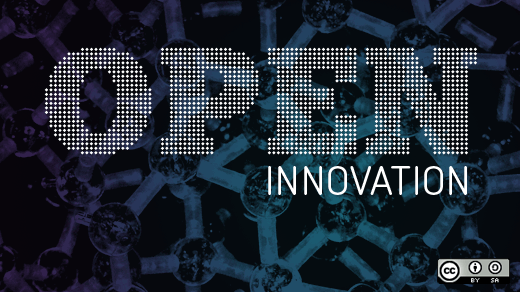This article is the second in a two-part series on building communities of marketing partners. Read the first part.
A community-powered approach to working with the broad ecosystem of marketing agencies—to which more and more firms are turning these days—can produce new and inspiring results.
I've seen it myself since I began leading marketing at Red Hat, especially during something we call our annual agency workshop. The workshop is our opportunity to strengthen the relationships, values, and shared knowledge that bind our community of marketing firms together.
Leveraging the community
Here's what we do: Once every year, my team invites all the external agencies that partner with us to join us in Raleigh, North Carolina, for a multi-day collaboration session. There, we outline our strategic goals for upcoming quarters—and lay bare our biggest hurdles, challenges, and struggles. We invite our community of marketing professionals to give us candid feedback on what does (and doesn't) work for meeting our goals and overcoming those challenges, and then we participate in a few joint activities.
One of these activities is a "brand report card," something we've adapted from Kevin Keller, a professor at Dartmouth. The report card lists ten traits the most successful brands share, and it works as an assessment instrument, allowing people to rate your brand according to certain criteria. Both Red Hat's internal marketing team and our community of marketing partners complete report cards for Red Hat. Then we all speak candidly about the areas we need to improve if we're going to become a successful and inspiring worldwide brand. We have dozens of extraordinarily smart people in the room with us as we do this, and we learn so much.
We also hold what we call "office hours." Before members of the community travel to Raleigh, they fill out surveys asking about the topics they think would help them best help us tackle our marketing challenges. Taking a page out of the open source "unconference" playbook, we then use that feedback to design quick, focused "round robin" sessions that address these topics. Each session lasts thirty minutes, but here's the key: Red Hat folks only speak for the first five minutes. The rest of the time goes to the community, for conversation, questions, and ideas.
And then there are the presentations. Red Hatters give detailed talks about our priorities and our brand, share relevant data and insights, and explain how we're thinking about current market trends. Whenever and wherever possible, we're candid and transparent. I remember how shocked everyone in the room was the first time our CEO, Jim Whitehurst, visited and spoke with them about our strategy, our dreams, and our struggles. He spoke just as he would to me and my team.
We also give the agencies the floor. They walk everyone through their recent programs, explaining what worked (and what didn't). They share best practices and innovative ideas. They tell the other agencies what engagement models seem to work best at Red Hat, and they ask the room for advice on which ones don't. In fact, we often have break-out work sessions, where we ask the room of brilliant marketers to help us with one of the more pressing issues of the moment (one example from a recent workshop: "How do we best communicate the security of our products and processes?").
When participants leave, they feel more empowered and engaged than ever before. And now the agency representatives have access to almost everything an internal Red Hatter would.
Humble beginnings
You can probably imagine that very first agency workshop, which we held about five years ago. Everyone was extremely reserved and nervous. Nobody wanted to disclose their secrets, fearing someone else from a rival agency might steal them. And what was this really all about anyway? The aversion to sharing was strong.
But we were patient, kept encouraging them, and invited them back—year after year.
Fast forward to today: The dynamic couldn't be more different. Now, about 65 representatives from 25 agencies join us. Community members sit on panels with new-found allies from agencies all over the country. They tell their stories of working with Red Hat. They ask one another for advice. And they share! This year, in fact, I actually had difficulty remembering which participants worked for which agencies—because as soon as people arrived, they gravitated to tables filled with people they don't normally see every day. That's how I knew we were succeeding in building a community.
The annual agency workshop is one of our best tools for arming the external agencies in our extended community with as much information as possible in order to help them do their best work—not just for us, but for anyone.
5 tips for running your own workshop
Each agency workshop teaches me something about how we can make these events more impactful for our ecosystem of agencies and for our marketers. Here are five lessons I've learned:
Go first. To create a culture of sharing and trust, you have to demonstrate a willingness to share and trust! If you don't, you won't find many people willing to open up. Share your pain points. Share those places where you're stuck. Be honest. Be vulnerable. And remember that you're setting an example.
Stick with it. The first time you do this, it's going to be awkward! Some agencies may even back out, because they don't want to share their work or violate their code of ethics by using other people's work. Let them back out. A culture of community among your agencies isn't something you create overnight. Don't simply share your own priorities and your own work. Share everything you possibly can—repeatedly. Share the context, the strategy, the pain points—and make sure everyone knows that this is the way it's always going to be. As people return in future years, they'll know what to expect, and they'll be more open.
Plan more. As I've already said, working with a community is much more challenging than working with an agency of record (or even a group of agencies with clear swim lanes!). You'll need to plan more. You'll need to communicate more. You'll need to invest more time. Just remember that you have to be the catalyst: You must work to make the experience valuable for them (not you). Experiment with different approaches: panels, office hours, break-outs, lightning talks, customer journey mapping, and more. Just keep reminding yourself that, in the end, receiving the power of an engaged community is worth all the effort (and more).
Relax your control. Agency workshops will reveal that you're now facing multiple potential points of failure. In the bygone days of agencies of record, you'd simply fired your agency if something went wrong or the work wasn't up to par. But when you're facing a room full of smaller, more autonomous groups, you'll be forced to realize that you don't have that kind of control. Focus on ways you can coordinate your ecosystem of innovators so everyone can gain something from the work. Mistakes are less likely that way, because you're giving up your sense of control and allowing yourself to be surprised by the power of the community.
Encourage connections. Some of my favorite moments at the workshops occur when agency partners connect, discover how they're each uniquely positioned to help us solve different challenges, and discuss how they can collaborate to create better solutions. Some have even gone on to partner on work for clients that aren't even connected to Red Hat! These are the very connections that define a community—and you don't control or determine them. After all, if you truly believe one firm should be in total control, you might as well hire an agency of record. Instead, start thinking about ways you can activate a community to drive value beyond your own firm.
Sure, reports on "the death of the agency of record" are not only accurate but also demanding that we change. And yet that doesn't mean marketing—or marketing agencies as we know them—today are doomed. On the contrary: It means we're paving the way for a community-powered approach to our profession that promises unparalleled results.






Comments are closed.